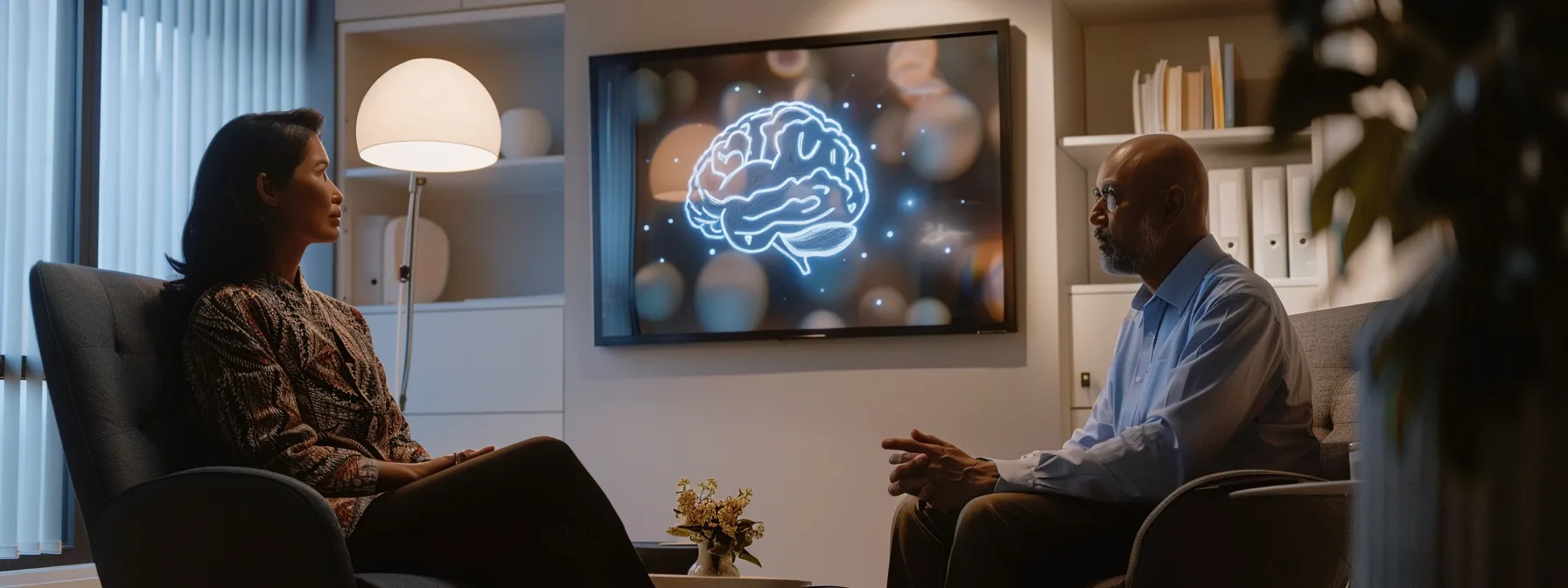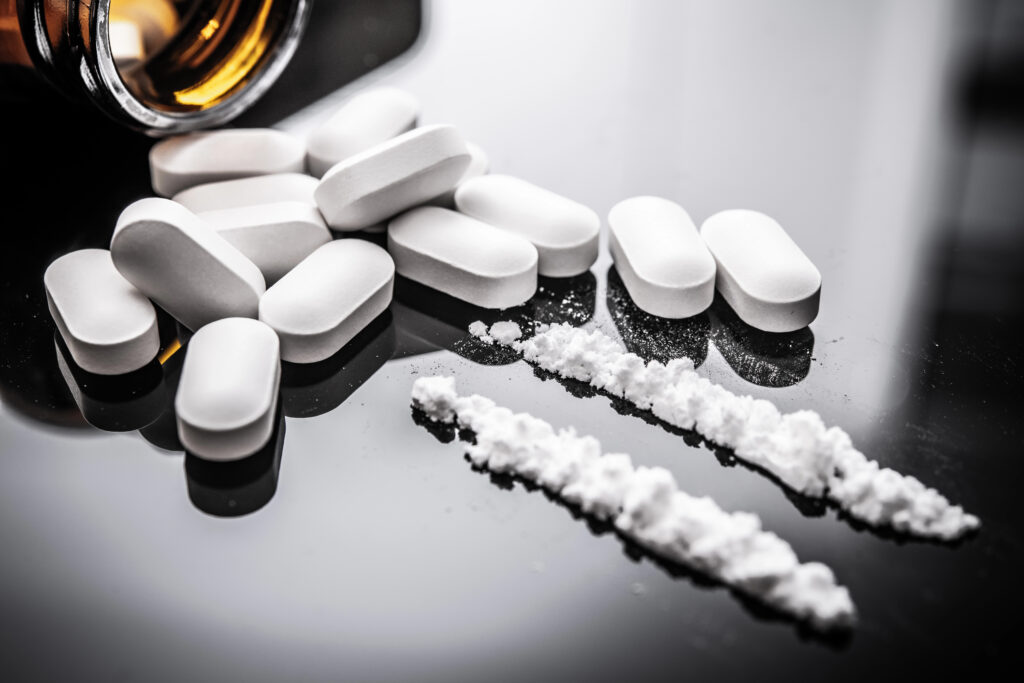Understanding Psychotherapy’s Impact on Bipolar Disorder Recovery and Maintenance
Psychotherapy transforms bipolar disorder recovery and maintenance by reinforcing medication and solidifying personal insight. The post explains how therapy supports medication, improves understanding of one’s condition, and prevents relapse through long-term strategies. Readers will learn specific techniques used in bipolar management and also explore how to measure treatment effectiveness. This information assists those struggling with treatment challenges, offering clear, actionable solutions.

Key Takeaways
- therapy reinforces medication use, improves self-insight, and prevents relapse in bipolar care
- structured talk and lifestyle adjustments support long-term mood stability
- regular sessions monitor health metrics and allow adaptive treatment
- family support and also technology aid in managing bipolar disorder effectively
Overview of Psychotherapy in Bipolar Disorder Management

This section defines psychotherapy and its importance in bipolar care, highlighting how exercise and brain-derived signals affect appetite, serotonin, and drug interaction. It outlines key principles of psychotherapeutic approaches, reviews types effective for bipolar disorder, and also explains the role of psychotherapy in long-term recovery for individuals managing mood instability.
Defining Psychotherapy and Its Importance
Psychotherapy is a treatment approach that uses structured conversations to help individuals control mood swings and manage bipolar disorder symptoms. This method is recognized by the international society for bipolar disorders for its contribution to a positive prognosis and improved lifestyle outcomes. Its practical techniques, supported by evidence from google scholar, address issues related to the mortality rate in bipolar care:
- Definition of psychotherapeutic techniques
- Application in daily lifestyle adjustments
- Impact on long-term recovery outcomes
Evidence gathered from extensive research demonstrates that psychotherapy plays a key role in reducing the adverse effects experienced by those with bipolar disorder. It uses proven methods to improve prognosis while adapting to the individual needs highlighted by studies from google scholar and guidance provided by the international society for bipolar disorders.
Key Principles of Psychotherapeutic Approaches
Psychotherapeutic approaches in bipolar disorder care adhere to rigorous health care standards and strong regulation measures, ensuring methods are grounded in statistical significance. The structured clinical interview for dsm provides a reliable basis for assessing individual needs, which contributes to a measurable improvement in quality of life and also overall symptom management.
These evidence-based methods rely on established procedures and practical expertise to adjust treatments effectively. Incorporating a structured clinical interview for dsm supports personalized care, demonstrating statistical significance in patient outcomes and reinforcing health care strategies that ultimately boost quality of life.
Different Types of Psychotherapy Effective for Bipolar Disorder
Different types of psychotherapy for bipolar disorder include methods such as cognitive-behavioral therapy and interpersonal therapy, which are known to reduce the severity of mood fluctuations. These approaches have demonstrated improvements in personal health markers including lipid regulation and liver function, with research findings supported by crossref and epidemiology data and careful monitoring of methylphenidate effects:
| Therapy Type | Key Benefits | Research Source |
|---|---|---|
| Cognitive-Behavioral Therapy | Improved mood management and reduced symptom severity | Crossref, Epidemiology |
| Interpersonal Therapy | Enhanced social interactions and regulated lifestyle factors | Methylphenidate studies |
Other psychotherapeutic options such as family-focused therapy effectively support long-term recovery by addressing interpersonal dynamics and practical lifestyle adjustments. The integration of education on factors like liver health and lipid levels complements medication management, further underpinning the evidence provided by epidemiology studies and also crossref reports.
Role of Psychotherapy in Long-Term Recovery
Psychotherapy supports long-term recovery in bipolar disorder by addressing complex symptoms such as racing thoughts and episodes of catatonia. The approach emphasizes individualized care plans that may include strategies like light therapy while monitoring side effects such as diarrhea, ensuring that each aspect of the mood disorder is managed effectively. Therapy sessions often incorporate metrics like the young mania rating scale to assess progress and tailor interventions.
This treatment method offers practical insights into managing daily fluctuations and optimizing overall health outcomes. Continuous evaluation and personalized adjustments serve to minimize disruptions in mood stability, reinforcing the value of structured care in preventing relapse and fostering sustainable wellness in bipolar disorder management.
Psychotherapy’s Impact on Bipolar Disorder Recovery

Psychotherapy bolsters coping mechanisms by offering structured support, ensuring informed consent and regular verify insurance checks. It reduces relapse rates by addressing psychosocial concerns and cycling negative behaviors while fostering medication adherence. A literature review and also case studies further illustrate successful outcomes in bipolar disorder maintenance.
Enhancing Coping Mechanisms Through Therapy
Psychotherapy sharpens coping strategies by integrating practical techniques with established pharmacology practices, enabling patients to manage bipolar symptoms and crisis situations effectively during an emergency. The approach considers detailed factors such as neurotransmitter reuptake, ensuring that patients grasp the links between therapy and medication management as outlined in an observational study.
This method supports patients in crafting personalized daily routines, as illustrated by a relevant manuscript that outlines measurable improvements in mood regulation and also overall quality of life:
| Element | Description |
|---|---|
| Pharmacology | Emphasis on medication management and neurotransmitter reuptake. |
| Emergency | Strategies for handling acute mood episodes. |
| Manuscript | Documented case studies and research insights. |
| Observational Study | Analytical findings that support therapeutic interventions. |
Reducing Relapse Rates With Regular Psychotherapy
Regular psychotherapy contributes to reducing relapse rates by managing the disease burden associated with bipolar disorder. Studies such as the national comorbidity survey and the world mental health survey initiative provide evidence that consistent therapy, when combined with medication from providers like Pfizer, can lead to improved overall outcomes and also better management of physical health issues affecting the skin:
| Element | Description |
|---|---|
| Clinical Data | Insights from national comorbidity surveys and world mental health survey initiative |
| Physical Health | Improvement in skin condition and related physical markers |
| Medication Support | Outcomes enhanced through treatments developed by Pfizer |
Consistent sessions enable providers to monitor critical health indicators and adjust treatment plans promptly, thereby reducing the relapse risk and overall disease burden. Integrating practical therapy strategies with pharmacological support, as evidenced by large-scale surveys, aids in fostering sustainable recovery outcomes for patients.
Improving Medication Adherence Through Support
Providers implement structured support programs that combine professional guidance with community engagement to promote consistent medication adherence. Patients benefit from regular physical activity plans and routine liver function tests, which help maintain stable remission and address challenges related to cyclothymia effectively.
The method focuses on delivering practical insights and personalized care, ensuring that individuals receive the support necessary to follow their treatment protocols. Tailored sessions emphasize the importance of community resources and clear monitoring practices, guiding patients toward improved adherence and also sustained recovery outcomes.
Case Studies Highlighting Successful Outcomes
Case studies reveal that structured psychotherapy, combined with insights from pharmacogenomics, leads to improved coping strategies and overall treatment compliance in bipolar disorder recovery. Evidence shows that participants benefit from enhanced physical therapy regimes and careful monitoring of injury recovery, leading to an overall stabilization in mood and better management of stressors including issues related to sex.
Research highlights practical outcomes where individualized therapy paired with evidence-based medical management fosters significant improvements in daily functioning. Data from these case studies indicates that integrating pharmacogenomics with focused interventions, such as physical therapy, results in effective coping mechanisms and reduced relapse rates, addressing common concerns related to injury and also personal health.
Long-Term Therapy Strategies for Bipolar Disorder

Establishing a continuing care plan with regular psychotherapy sessions is key to bipolar disorder management. A structured approach integrates family support, monitors haloperidol and medication effects, and tracks factors like glucose, weight, and expressed emotion. This strategy ensures treatment plans are adjusted as needed for long-term stability.
Establishing a Continuing Care Plan
The plan starts with establishing a schedule that incorporates periodic electroencephalography tests and meditation sessions, ensuring that the frequency of these evaluations meets specific clinical benchmarks. This organized approach helps manage the risk associated with bipolar instability while providing actionable steps guided by a randomized controlled trial methodology.
The continuing care plan also features a structured routine that integrates measurable outcomes and professional supervision through regular assessments:
- Weekly meditation practice reviews
- Monthly electroencephalography monitoring
- Quarterly randomized controlled trial evaluations
- Ongoing risk assessments to adjust therapy frequency
This framework supports targeted intervention strategies and encourages patient adherence to treatment protocols.
Importance of Regular Psychotherapy Sessions
Regular psychotherapy sessions play a critical role in managing bipolar disorder by offering continuous support to address symptoms such as irritability and stress, while complementing treatments like electroconvulsive therapy and dietary strategies including fasting. These sessions enable a health professional to monitor progress and adjust care plans effectively, ensuring structured follow-ups that directly improve daily living:
- Weekly session reviews
- Individualized treatment adjustments
- Continuous tracking of mood fluctuations
Frequent therapy sessions provide a reliable framework for tackling persistent mood challenges, which can reduce episodes of irritability and mitigate stress responses. A health professional advises that such structured engagement, combined with lifestyle practices like fasting and supportive interventions including electroconvulsive therapy, empowers individuals to maintain a stable recovery path and manage bipolar disorder effectively.
Integrating Family Support in Long-Term Management
Integrating family support provides a robust framework for managing bipolar disorder over the long term by encouraging a collaborative effort among the patient, clinician, and family members. This approach helps address critical issues such as lithium toxicity and psychotic depression while offering practical guidance that complements psychotherapy for bipolar, reducing unnecessary trips to the emergency department.
The active involvement of family members enhances the treatment plan by ensuring that a clinician can adapt interventions based on real-time feedback and observed behavioral changes. This method reinforces structured recovery efforts and assists in managing acute incidents, including signs of lithium toxicity and psychotic depression, thus fostering a sustainable and balanced care environment.
Monitoring and Adjusting Treatment Plans Over Time
The process of monitoring treatment plans involves consistent evaluation through routine assessments in nursing settings, aligning clinical observations with weight loss measurements and neurology findings. This structured approach identifies biomarker fluctuations and clarifies the etiology of symptom variations to guide targeted interventions:
- Regular nursing reviews
- Continuous weight loss tracking
- Neurology assessment for biomarker levels
- Evaluation of underlying etiology
Consistent treatment adjustments are vital for sustaining long-term recovery in bipolar disorder management. By integrating practical examples from clinical practice, this method supports efficient adaptation of interventions, ensuring therapy remains responsive to evolving patient needs and clinical indicators.
Specific Psychotherapeutic Techniques Used in Bipolar Management

The section outlines key psychotherapeutic techniques, covering Cognitive Behavioral Therapy, Interpersonal and Social Rhythm Therapy, Dialectical Behavior Therapy, and Psychoeducation. Each method employs a rigorous methodology, addressing issues like substance dependence, promoting a healthy diet, and even elements mentioned on twitter, while clarifying patient concerns including birth control management.
Cognitive Behavioral Therapy for Bipolar Disorder
Cognitive Behavioral Therapy for bipolar disorder employs targeted discussions and practical strategies that help individuals manage symptoms and improve daily functioning. This method integrates treatment elements such as lorazepam and carbamazepine, ensuring that patients receive focused attention during routine screening procedures while gaining valuable knowledge about their condition.
This approach is designed to offer clear, actionable insights, enabling patients to address challenges and maintain a stable recovery. It emphasizes effective self-monitoring and adherence to medication regimens, providing practical support that enhances overall treatment outcomes and personal understanding of bipolar management.
Interpersonal and Social Rhythm Therapy Overview
Interpersonal and Social Rhythm Therapy actively addresses mood fluctuations by emphasizing structured daily activities and consistent social interactions, thereby helping individuals manage the contrast between moments of euphoria and periods of depression. This technique integrates insights from the depression and bipolar support alliance to offer clear strategies that raise motivation and maintain balanced energy levels, ultimately reducing the risk of experiencing death-related anxiety during mood transitions.
The therapy encourages a practical approach to aligning social routines with symptom management, ensuring that patients can effectively regulate their energy and mood. By focusing on tangible outcomes, such as the stabilization of energy and preventing severe depressive episodes, clinicians provide bipolar support that reassures patients and supports continuous motivation for recovery.
Dialectical Behavior Therapy Applications
Dialectical Behavior Therapy provides structured methods that offer insight into the complex challenges experienced during episodes of mania and sleep deprivation, guiding patients in understanding patterns linked to alcohol use and other destabilizing factors. This approach supports steady recovery by combining practical strategies with regular insurance verifications to ensure ongoing treatment adherence.
Through targeted sessions, Dialectical Behavior Therapy equips individuals with actionable skills to manage mood fluctuations by reducing triggers that can exacerbate mania and impair sleep quality. The method demonstrates a commitment to blending clinical expertise with practical advice, fostering improved outcomes in managing alcohol-related issues and overall stability in bipolar disorder recovery.
Psychoeducation’s Role in Patient Understanding
Psychoeducation equips patients with accessible knowledge regarding blood pressure monitoring, medication classes, and treatment effects, offering clarity on how interventions such as monoamine oxidase inhibitors can impact bipolar management. The approach draws on data from sources like medline and principles from alternative medicine practices in the united states to guide patients toward a deeper comprehension of their treatment options.
This method facilitates understanding of practical treatment regimens and potential interactions, ensuring patients grasp how various therapies assist in stabilizing mood and preventing relapse. Clinical insights incorporated from reliable institutions help illustrate the benefits of a well-informed patient base, thereby fostering long-term recovery and consistent treatment adherence.
Measuring Effectiveness of Psychotherapy in Bipolar Treatment

This section examines tools and metrics for assessing therapy outcomes, including routine physical examination and patient feedback on issues like weight gain, hallucination, and comorbidity. It also reviews research on psychopharmacology and long-term benefits while addressing barriers to effective therapy. Insights here guide a practical understanding of therapy measurement in bipolar treatment.
Tools and Metrics for Assessing Therapy Outcomes
The clinician measures therapy outcomes by leveraging specific tools and metrics, using effective assessments to link treatment responses with daily factors such as food intake and drink habits. The process sometimes includes monitoring markers after administering lumateperone and measuring the effect of an electric current during controlled testing at a specialized clinic.
Regular evaluations focus on understanding changes in patient behavior and physical health, where quantitative assessments are aligned with observable improvements in their daily routine. Through practical examples from clinical practice, providers note that proper monitoring of factors like food routines and drink consumption helps tailor adjustments in therapy that include medication and electric current assessments at the clinic.
Patient Feedback and Its Importance
Patient feedback plays a significant role in determining the practicality of psychotherapy for bipolar recovery and maintenance, serving as an essential indicator of treatment effectiveness. It offers firsthand insight into improvements in nutrition, the management of acute episodes in the hospital, and the regulation of blood elements in patients using therapies such as lithium;
- Feedback on dietary practices and overall nutrition
- Observations regarding the handling of acute episodes in hospital settings
- Reports on blood monitoring and lithium treatment response
Collected testimonials enhance the understanding of patient responses to therapy, guiding providers in tailoring sessions that address specific issues like medication interactions and nutrition concerns. This practical insight assists in making informed adjustments to treatment protocols, thereby improving outcomes in bipolar disorder care.
Research Findings on Long-Term Benefits
Recent research indicates that long-term psychotherapy interventions provide measurable improvements in managing depression and minimizing adverse effect risks associated with medications like quetiapine. Studies report that structured therapy supports caregivers in addressing symptom fluctuations while reducing the need for frequent advertising of adjunct treatments.
Data from controlled trials offer practical examples of sustainable benefits in daily functioning and symptom management, helping providers tailor interventions to individual needs:
- Improved coping mechanisms for depression
- Enhanced caregiver support and education
- Minimized adverse effect risks with quetiapine
- Targeted advertising strategies for therapy programs
This evidence reinforces how long-term psychotherapy contributes to stability and recovery in bipolar disorder.
Addressing Barriers to Effective Therapy
Addressing barriers to effective therapy involves identifying obstacles such as improper diet, inconsistent sedative administration, and potential drug interactions that can hinder treatment progress. Practitioners use evidence from cochrane reviews to adjust therapeutic plans and optimize resonance between clinical interventions and patient needs, ensuring that treatment remains both practical and effective.
Clinical professionals monitor patient responses closely and implement corrective measures when necessary, focusing on aspects like diet consistency and drug scheduling to improve therapy outcomes. Insights drawn from cochrane studies reinforce the need to balance sedative use and treatment resonance, which can significantly improve adherence and long-term recovery in bipolar disorder management.
Future Directions in Psychotherapy for Bipolar Disorder

Innovative approaches emerging in treatment include integrating technology and teletherapy to improve communication in bipolar care. Enhancing cultural competence addresses impulsivity and disease complexities, while expanding access to psychotherapeutic resources benefits every patient. Internet-based solutions offer practical insights to support sustainable recovery and maintenance.
Innovative Approaches Emerging in Treatment
The emerging approaches in treatment for bipolar disorder focus on integrating combination therapy methods that address various risk factors unique to bipolar ii disorder. This innovative framework, endorsed by recent statistics and approval from the food and drug administration, streamlines the patient journey toward sustainable recovery and maintenance.
Clinicians now incorporate individual assessments to tailor combination therapy that mitigates risk factors linked to bipolar ii disorder. Cases reveal that leveraging updated statistics and food and drug administration guidelines enhances treatment outcomes and offers a clearer path to long-term stability.
Integrating Technology and Teletherapy
The integration of technology into therapy and treatments provides an innovative means of evaluating patient progress while addressing the challenges of substance abuse and improving self-management skills. Teletherapy platforms offer streamlined communication that enhances the delivery of therapy, ensuring prompt evaluations and adjustments to treatment plans.
Teletherapy enables clinicians to use advanced digital tools for monitoring progress and evaluating therapeutic interventions, thereby complementing traditional treatments for substance abuse. This approach equips professionals with real-time data that refines their skill in managing therapy outcomes and supports a more personalized, effective recovery process.
Enhancing Cultural Competence in Therapy
The professional approach to enhancing cultural competence in therapy focuses on integrating practical methods supported by findings from pubmed and clinical trials, including studies on placebo responses. This improved cultural insight helps clinicians recognize the unique challenges related to addiction and adjust interventions according to the incidence of culturally rooted behaviors.
Customized care plans that consider cultural nuances allow therapists to foster open communication, such as providing options for email support to share feedback. With first-hand expertise reflecting systematic assessment practices, therapists offer actionable insights that promote sustained recovery and better management of bipolar disorder conditions.
Expanding Access to Psychotherapeutic Resources
The professional approach to expanding access to psychotherapeutic resources emphasizes addressing critical challenges such as managing violence and hypertension in patients with bipolar disorder. This method integrates practical measures with evidence-based practices, including the use of cariprazine and insights from genetics to ensure a more effective and accessible treatment plan.
Clinicians are actively working to incorporate specialized treatments that also address seasonal affective disorder as part of a broader strategy to improve care. They offer tailored interventions that combine traditional psychotherapy with medical insights, empowering individuals to achieve better long-term recovery outcomes.
Conclusion
Psychotherapy plays a critical role in stabilizing mood and enhancing recovery in individuals with bipolar disorder. It integrates practical techniques that support medication adherence and lower the risk of relapse. Structured therapy sessions offer clear strategies for managing symptoms and daily challenges. These interventions empower patients to achieve long-term stability and an improved quality of life.












